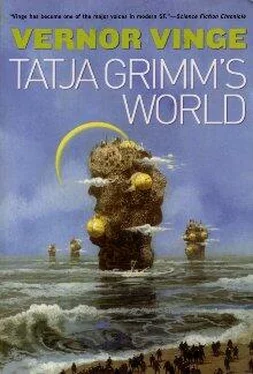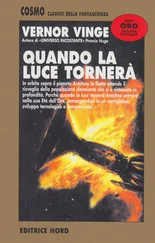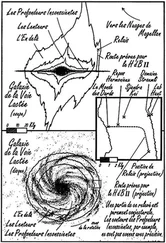Tatja Grimm’s World
by Vernor Vinge
To Ada Grace Vinge (1917–1986)
With love and admiration
Part 1
THE BARBARIAN PRINCESS
Fair Haven at South Cape was a squalid little town. Ramshackle warehouses lined the harbor, their wooden sides unpainted and rotting. Inland, the principal cultural attractions were a couple of brothels and the barracks of the Crown garrison. Yet in one sense Fair Haven lived up to its name. No matter how scruffy things were here, you knew they would be worse further east. This was the nether end of civilization on the south coast of the Continent. Beyond South Cape lay four thousand miles of wild coast, the haunt of littoral pirates and barbarian tribes.
Rey Guille would soon sail east, but the prospect did not bother him. In fact, he rather looked forward to it. For obvious reasons, there weren’t many customers along the south coast run. The Tarulle Barge would put in at two of the larger barbarian settlements, villages with a taste for some of Tarulle’s kinkier publications. There was also an author living in the coastal wilderness. His production was weird and erratic, but worth an extra stop. Except for these three landfalls, the barge would sail straight around the south coast, free of external problems. It would be thirty days before they reached the Osterlais.
Thirty days, sixty wake periods. Enough time for the translators to prepare the Osterlai and Tsanart editions, enough time for Brailly Tounse to recondition the Tarulle presses. Rey surveyed his tiny office. Thirty days. That might even be enough for him to dispose of his current backlog; manuscripts were stacked from floor to ceiling behind him. The piles on his desk blocked his view of Fair Haven harbor—and more important, the breeze that seeped in from over the water. These were all the submissions taken aboard during their passage through the Chainpearls and Crownesse. There would be some first class stories here, but most would end up as extra slush in Brailly’s paper-making vats. (Thus—as Rey had once pointed out in an editorial—every submission to Fantasie eventually became part of the magazine.)
Rey jammed open the tiny windows, and arranged his chair so he could sit in the breeze. He was about halfway through the desk stack: the easy ones he could decide in a matter of seconds. Even for these, he made a brief note in the submission log. Two years from now the Tarulle Publishing Company would be back in the Chainpearls. He couldn’t return the manuscripts, but at least he could say something appropriate to the submitters. Other stories were harder to judge: competent but flawed, or inappropriate outside the author’s home islands. Over the last few days, a small pile of high-priority items had accumulated beneath his desk. He would end up buying most of those. Some were treasures. Ivam Alecque’s planet yarns were based on the latest research in spectrometry; Rey planned a companion editorial about the marvelous new science.
Alas, he must also buy stories that did not thrill him. Fantasie magazine lived up to its name: most of his purchases were stories of magic and mysticism. Even these were fun when the authors could be persuaded to play by internally consistent rules.
Rey grabbed the next manuscript, and scowled. Then there were the truly revolting things he must buy, things like this: another Hrala adventure. The series had started twenty years earlier, five years before he signed on with Tarulle. The first few stories weren’t bad, if you liked nonstop illogical action with lots of blood and sex; old Chem Trinos wasn’t a bad writer. As was Tarulle custom, Trinos had exclusive control of his series for eight years. Then Tarulle accepted Hrala stories from anyone. The fad kept growing. Otherwise decent writers began wasting their time writing new Hrala stories. Nowadays the series was popular all around the world, and was practically a cult in the Llerenitos.
Hrala the Barbarian Princess: over six feet tall, fantastically built, unbelievably strong and crafty and vengeful and libidinous. Her adventures took place in the vast inland of the Continent, where empires and wars had no need to conform to the humdrum world that readers knew. She was the idol of thousands of foolish male readers and a model for thousands of female ones.
Rey paged slowly through this latest contribution to the legend. Hmph … for its kind, the story was well written. He’d have his assistant editor look it over, make it consistent with the background files she kept on the series. He would probably have to buy it. He tossed the manuscript under his desk and made a note in the submission log.
An hour later, Rey was still at it, the “in” pile fractionally smaller. From the decks below his windows came the continuing noise of supplies being loaded, crewmen shouting at stevedores. Occasionally he heard people working on the rigging above him. He had long since learned to tune out such. But now there was a different clatter: someone was coming along the catwalk to his office. A moment later, Coronadas Ascuasenya stuck her head in the doorway. “Boss, such a deal I got for you!”
Uh-oh. When Cor’s accent thickened and her words came fast, it was a sure sign she had been swept away by some new enthusiasm. He waved her into the office. “What’s that?”
“Tarulle magazines, they don’t sell themselves. Other things we need to grab buyer interest.”
Rey nodded. Jespen Tarulle had a small circus housed on the afterdecks. They put on shows at the larger ports, hyped all the Tarulle publications. Cor was fascinated by the operation; she was constantly trying to add acts representing stories and authors from Fantasie. She was good at it, too, a natural born publicist. Rey figured it was only a matter of time before higher-ups noticed, and he lost his assistant editor. “What have you got?” “Whom,” she corrected him. She stepped back and waved at someone beyond the doorway. “I present you Hrala, Princess of the Interior!” She pronounced the name correctly, with a throat-tearing rasp that was painful even to hear.
The portentous intro brought no immediate action. After a moment, Cor stepped to the door and spoke coaxingly. There were at least two people out there, one of them a printsman from Brailly’s crew. A second passed, and someone tall and lanky bent through the doorway…
Rey rocked back in his chair, his eyes widening. The visitor was remarkable, though not in the way Cor meant. It was a female: there was a slimness in the shoulders, and a slight broadening in the hips. And she was tall. The ceiling of Guille’s office was six feet high; the girl’s tangled red hair brushed against it. But scale her down to normal size and she might be taken for a street waif. Her face and hair were grimy. A bruise darkened her face around one eye. With her arrival the room filled with the smell of rancid grease. He looked at her clothes and understood the source of part of the smell. She was dressed in rags. There were patches on patches on patches, yet holes still showed through. But these were not the rags of a street waif: these were of leather, thick and poorly cured. She carried a walking staff almost as tall as she was.
The circus people might have use for such a character, though scarcely as Hrala. He smiled at the girl. “What’s your name?”
Her only reply was a shy smile that revealed even, healthy teeth. There was a nice face hiding under all the dirt.
Cor said, “She doesn’t understand one word of Spräk, Boss.” She looked out the door. “What did she call herself, Jimi?”
The printsman stuck his head into the office; there wasn’t room for three visitors. “Good afternoon, Master Guille,” he said to Rey. “Uh, it’s hard to pronounce. The closest thing in a civilized name would be ‘Tatja Grimm.’ ” The girl’s head came up and her smile broadened.
Читать дальше








